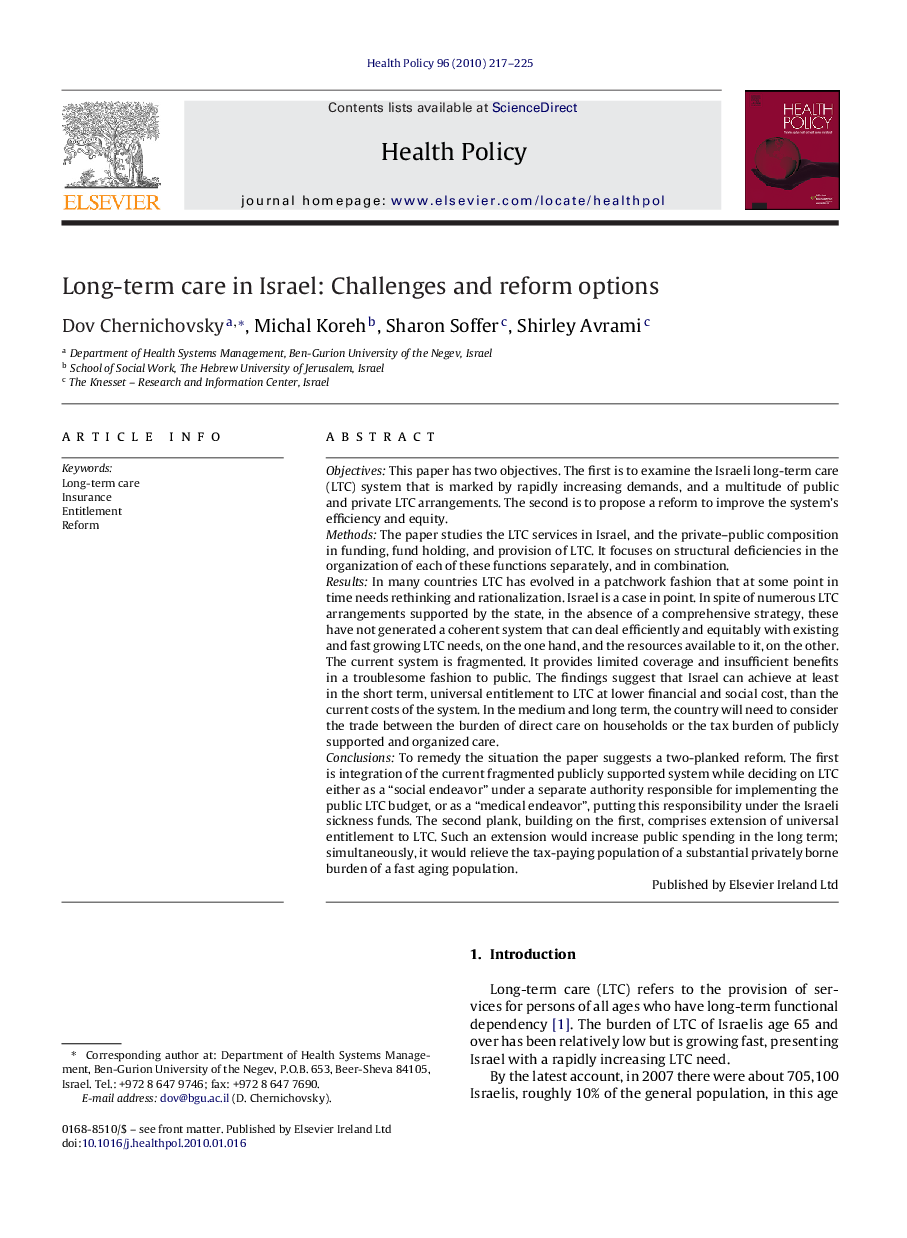| کد مقاله | کد نشریه | سال انتشار | مقاله انگلیسی | نسخه تمام متن |
|---|---|---|---|---|
| 4198263 | 1279047 | 2010 | 9 صفحه PDF | دانلود رایگان |

ObjectivesThis paper has two objectives. The first is to examine the Israeli long-term care (LTC) system that is marked by rapidly increasing demands, and a multitude of public and private LTC arrangements. The second is to propose a reform to improve the system's efficiency and equity.MethodsThe paper studies the LTC services in Israel, and the private–public composition in funding, fund holding, and provision of LTC. It focuses on structural deficiencies in the organization of each of these functions separately, and in combination.ResultsIn many countries LTC has evolved in a patchwork fashion that at some point in time needs rethinking and rationalization. Israel is a case in point. In spite of numerous LTC arrangements supported by the state, in the absence of a comprehensive strategy, these have not generated a coherent system that can deal efficiently and equitably with existing and fast growing LTC needs, on the one hand, and the resources available to it, on the other. The current system is fragmented. It provides limited coverage and insufficient benefits in a troublesome fashion to public. The findings suggest that Israel can achieve at least in the short term, universal entitlement to LTC at lower financial and social cost, than the current costs of the system. In the medium and long term, the country will need to consider the trade between the burden of direct care on households or the tax burden of publicly supported and organized care.ConclusionsTo remedy the situation the paper suggests a two-planked reform. The first is integration of the current fragmented publicly supported system while deciding on LTC either as a “social endeavor” under a separate authority responsible for implementing the public LTC budget, or as a “medical endeavor”, putting this responsibility under the Israeli sickness funds. The second plank, building on the first, comprises extension of universal entitlement to LTC. Such an extension would increase public spending in the long term; simultaneously, it would relieve the tax-paying population of a substantial privately borne burden of a fast aging population.
Journal: Health Policy - Volume 96, Issue 3, August 2010, Pages 217–225